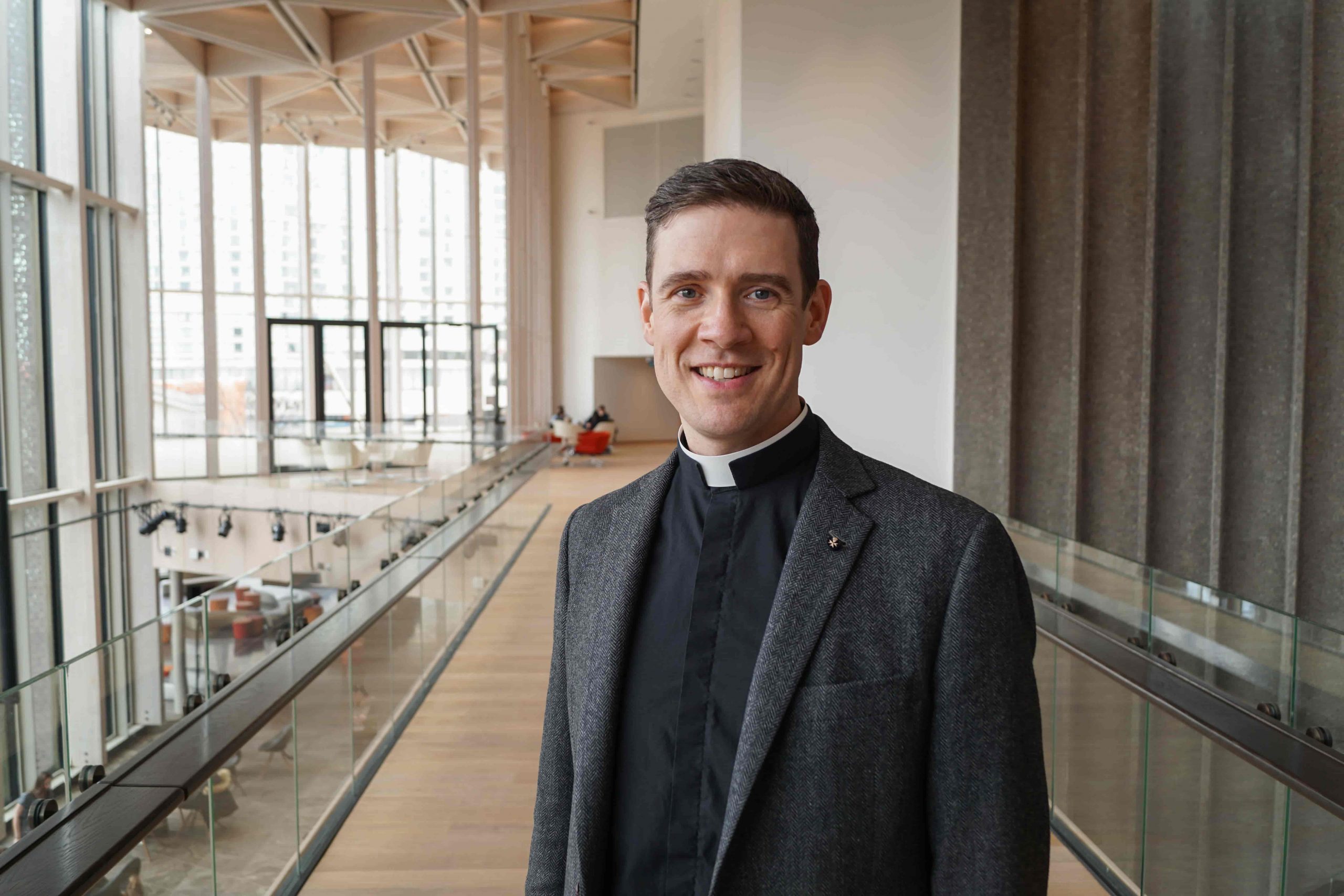One in 10 payday loan shops shuts down, leaving desperate consumers with fewer options. FOR IMMEDIATE RELEASE June 27, 2019 OTTAWA, ON – Ontario’s payday loan users are likely worse off today than before the province capped payday loan interest rates and allowed cities to limit and regulate the location of lenders. A new Cardus report, The Changing Face of Payday Lending in Canada, finds that since the rate caps were introduced in January 2018, one in 10 payday lending shops in Ontario have shut down – all of them small, independent outlets. Several cities have also limited the number of payday loan outlets allowed within their jurisdiction, including Toronto, Ottawa, Kingston, and Kitchener. In most cases, payday loan shops will be limited to one per ward, which will leave big lenders with little local monopolies in the short-term, small-dollar loan market. Meanwhile, credit unions haven’t stepped up to provide better, lower cost alternatives to payday loans, despite the shutdown of so many payday lenders. “Ontario consumers now have fewer neighbourhood options for emergency loans than before,” says report author Brian Dijkema. “We know from polling Cardus has done with the Angus Reid Institute that 33 percent of Canadians say they’re so socially isolated, they’re not sure they’d have someone to turn to in case of a financial emergency. So, the need for emergency cash remains. While having fewer payday loan storefronts might look better, those desperate for credit might end up more dependent on impersonal and hard-to-regulate online lenders.” There is also evidence that the lack of competition among payday lenders in Ontario is getting worse. The three biggest such lenders in the province now command 63 percent of the market – up from 57 percent in 2016. The Cardus report also revealed another significant shortcoming in Ontario’s approach to payday loans: the province has little idea of whether it has actually helped consumers use fewer payday loans. The government hasn’t collected or published any data on consumer behaviour in this regard. “Governments have not focused enough on how best to help those who are depending on short-term, high-interest loans,” says Dijkema. “That should be the focus for the future, instead of flashy announcements of policy changes with little to no follow-up to see if new measures actually helped.” Download The Changing Face of Payday Lending in Canada here. -30- MEDIA INQUIRIES Daniel Proussalidis Cardus – Director of Communications 613-241-4500 x508 dproussalidis@cardus.ca

Ontario Payday Loan Users Worse Off Than in 2018
June 27, 2019

Alberta Needs to Push for More Payday Loan Alternatives
One third of payday loan shops have shut down, but where are the low-cost alternatives? FOR IMMEDIATE RELEASE June 27, 2019 OTTAWA, ON – Alberta has managed to shrink the number of its payday loan shops in operation, but that doesn’t mean consumers are better off, according to a new Cardus report, The Changing Face of Payday Lending in Canada. Since Alberta introduced interest rate caps in 2016, 30 percent of payday lending shops in the province have shut down. Meanwhile, credit unions haven’t stepped up to provide better, lower cost alternatives to payday loans, despite the shutdown of so many payday lenders. Alternative, lower cost loans account for only 0.09 percent of the volume of all loans in Alberta. “Alberta consumers now have far fewer neighbourhood options for emergency loans than before,” says report author Brian Dijkema. “We know from polling Cardus has done with the Angus Reid Institute that 33 percent of Canadians say they’re so socially isolated, they’re not sure they’d have someone to turn to in case of a financial emergency. So, the need for emergency cash remains. While having fewer payday loan storefronts might look better, those desperate for credit might end up more dependent on impersonal and hard-to-regulate online lenders.” The Cardus report also revealed other significant shortcomings in Alberta’s approach to payday loans: the province has little idea of whether it has actually helped consumers use fewer payday loans. The government hasn’t collected or published any data on consumer behaviour in this regard. “Governments have not focused enough on how best to help those who are depending on short-term, high-interest loans,” says Dijkema. “If you’re going to change policy, you should do the follow-up to see if new measures actually helped.” Download The Changing Face of Payday Lending in Canada here. -30- MEDIA INQUIRIES Daniel Proussalidis Cardus – Director of Communications 613-241-4500 x508 dproussalidis@cardus.ca
June 27, 2019

Cardus Takes Bold New Step with New Vice President of Research
Lisa Richmond brings management and research heft to study of social institutions. FOR IMMEDIATE RELEASE June 24, 2019 OTTAWA, ON – Cardus is poised to expand and revitalize its research department with the appointment of Lisa Richmond as Vice President of Research. Lisa comes to Cardus after 16 years at Wheaton College in Illinois where she has been serving as Dean of Library and Archives.“Lisa is set to take the Cardus research department to the next level,” says Michael Van Pelt, President and CEO of Cardus. “She will join our senior management team, moving us further toward the goal of promoting a flourishing society North America wide. She is Canadian, has worked in the United States, and speaks both English and French, positioning Lisa excellently for growing the reach of our research.” At Wheaton, Lisa oversees 35 faculty and staff. She is responsible for staffing, programs, facilities, funding, and strategy at three separate libraries with $4 million in annual expenditures, while also planning a major capital campaign. Lisa has lived in five Canadian provinces and two U.S. states. She holds a Bachelor of Arts degree from the University of Regina, a Master of Library and Information Studies from UBC, and a Master's degree in theology from Regent College. She will soon finish her PhD in French literature from the Université Paul-Valéry Montpellier III, in France. Lisa and her husband, Jonathan, plan to relocate to Hamilton, ON where she will assume her duties in early September. “Cardus is unlike any other organization I've encountered,” says Lisa. “It combines depth and thoughtfulness with engaged and accessible research about North American society. It’s more important than ever that we help individuals and families thrive, that we spur our schools, workplaces, and cities to be places where everyone flourishes, and that our laws support the fundamental freedoms that make our common life possible. I am excited to join Cardus and become part of this work.” With Lisa coming on board, Executive Vice President Ray Pennings will move into his next phase at Cardus as senior public intellectual. Ray will take on a greater role in shaping public debates and advancing Cardus arguments. He will continue overseeing Cardus publications Comment and Convivium, while also driving cultural intelligence efforts, including the Spirited Citizenship project. -30- MEDIA INQUIRIES Daniel Proussalidis Cardus – Director of Communications 613-241-4500 x508 dproussalidis@cardus.ca
June 24, 2019

Statement on Passage of Bill 21 in Quebec
Quebec secularism bill based on “a historical fiction.” FOR IMMEDIATE RELEASE June 17, 2019 Rev. Dr. Andrew Bennett, Director of the Cardus Religious Freedom Institute, has released the following statement the passage of Bill 21 in the Quebec National Assembly: “The assertion in Bill 21 that Quebec is a neutral, lay state is patently false and a historical fiction. A State that closes off the public square to citizens who choose to openly express their religious faith is not neutral; it asserts a secular ideology with secularist principles. A genuinely neutral State facilitates open expression of both religious and non-religious belief in the public square insomuch as such expression is respectful of others and of the legitimate rule of law. The new secularism law tries to maintain the fiction of upholding freedom of religion and conscience. Religious freedom is about the public living out of faith through observance and action, both inside and outside a place of worship. Such fundamental freedoms are not gifts of the State. The State must not unjustly limit fundamental freedoms. The new law denies freedom of religion to public servants in Quebec and, in doing so, will lower a pall over all public expression of religious faith there and significantly limits Quebeckers’ ability to engage in a genuinely common life with people of different beliefs. We possess the fundamental freedom of conscience and religion because we are human beings with dignity that the State may not sully. All opportunities for reasonable legal challenges should be pursued. Additionally, the Government of Quebec should not be surprised if public sector employers and employees conclude that civil disobedience is justified in opposing an unjust law.” MEDIA INQUIRIES Daniel Proussalidis Cardus - Director of Communications 613-241-4500 x508 dproussalidis@cardus.caAbout the Cardus Religious Freedom Institute The CRFI researches Canadian religious freedom issues in order to educate Canadians and to strengthen the national network of religious freedom advocates. Central to the Institute’s work is the understanding that religious freedom is the fundamental right of all people, their communities, and their institutions to live out their most deeply held beliefs in both public and private contexts without interference from the state or other authorities. To learn more, visit the Cardus website.
June 17, 2019

Extreme Social Isolation and Loneliness Affect Almost One Quarter of Canadians
Survey identifies pockets of resilience against isolation and loneliness in Canadian society. FOR IMMEDIATE RELEASE June 17, 2019 OTTAWA, ON – An extensive new survey by the Angus Reid Institute, conducted in partnership with think tank Cardus, finds that 23 percent of Canadians suffer from extreme social isolation and loneliness. An almost equal proportion of Canadians struggles with neither of those issues. The survey also found:33% of Canadians say they’re not sure they could count on anyone for emergency financial help. 18% of Canadians say they’re not certain they could lean on anyone during a personal crisis. 45% of Canadians say they haven’t interacted socially with a neighbour in the last month. 38% of Canadians with a physical disability struggle with social isolation and loneliness.“Social isolation and loneliness are one of the biggest challenges of our time,” says Ray Pennings, executive vice president of Cardus. “They’re a symptom of our culture’s obsession with personal autonomy, leaving us living life as ‘I’ instead of ‘we.’ In doing so, we reap the poorer financial, mental, and physical health associated with isolation and loneliness, possibly making us more vulnerable to things like drug abuse, suicide, and the debt spiral caused by payday loan use.” The survey also identified pockets of resilience in Canadian society:75% of Canadians who were neither isolated nor lonely were married (or living common law) compared to just 48% of those who struggle with both issues. 63% of Canadians who were neither isolated nor lonely had children, compared to 58% of the most isolated and lonely. 36% of Canadians who weren’t isolated attended religious services at least monthly, compared to just 17% of the very isolated. 51% of Canadians who weren’t isolated prayed at least monthly, compared to 38% of the very isolated.“Two key social institutions seem to provide a buffer against isolation and loneliness – family and faith,” says Pennings. “Governments, media, the academy, social agencies, and all Canadians need to recognise the value of these institutions in order to find the solutions so many of us need.” Check out the full survey results online. -30- MEDIA INQUIRIES Rachel DeBruyn Cardus – Communications Officer 613-241-4500 x506 rdebruyn@cardus.ca
June 17, 2019

Canadian Millennials Take Up Challenge of Living a Public Faith
Initiative will help train young Canadians from coast to coast to bring their faith into the public square. FOR IMMEDIATE RELEASE June 6, 2019 OTTAWA, ON – The Cardus Religious Freedom Institute (CRFI) today launched its Faith in the Future Initiative – a project designed to help young people live a public faith. The initiative will support Canadian millennials in their efforts to live out their faith publicly in an authentic and integral way. Rejecting relativism, syncretism, and a mushy middle consensus, which involve a compromise of belief, the Initiative involves authentic engagement, requiring delegates to be honest about their beliefs. “Faith in the Future recognizes that we hold many different beliefs, but that we need to engage one another in these differences in order to better recognize our shared humanity which is so necessary if we are to live a common life together,” says Father Deacon Andrew Bennett, Director of the CRFI. The Faith in the Future Initiative aims to build a network of 100 young faith leaders from Christian and other religious traditions across the country over the next three years. This initiative will support the development of public faith among Canadian millennials by organizing events, creating tools, maintaining engagement, and convening conferences with young faith leaders. “Faith in the Future is off to a running start, with fifty young leaders from various faiths involved already thanks to ten coffeehouse meetings we have held in seven different provinces across Canada,” said Fr. Dcn. Andrew. “But all that was in preparation for the real work, which begins today.” What will Faith in the Future delegates do?Throughout the summer and into the autumn of 2019, Faith in the Future delegates will meet in their local communities to study and discuss various materials related to religious freedom and living a public faith, including An Institutional History of Religious Freedom in Canada, a foundational CRFI report. In the autumn, delegates will gather at two regional conferences – one in Western Canada, one in Eastern Canada to consolidate their learning and expand their multi-faith networks. At the same time they will engage their own faith communities in examining how effective they are in living their faith publicly and contributing to a deep pluralism. In early 2020, delegates will design and propose projects for which they will be solely responsible. The projects will support and encourage delegates’ own faith community to live a public faith. Delegates will have the opportunity to submit articles for consideration to Convivium magazine’s Voices from the Crowd series, giving them a platform to articulate the importance of public faith in their lives.The CRFI Advisory Council will mentor local Faith in the Future communities. Each community will have its own mentor to support them in living a public faith. More information on the Faith in the Future Initiative is available online. -30- MEDIA INQUIRIES Daniel Proussalidis Cardus - Director of Communications 613-241-4500 x508 dproussalidis@cardus.caAbout the Cardus Religious Freedom InstituteThe CRFI researches Canadian religious freedom issues in order to educate Canadians and to strengthen the national network of religious freedom advocates. Central to the Institute’s work is the understanding that religious freedom is the fundamental right of all people, their communities, and their institutions to live out their most deeply held beliefs in both public and private contexts without interference from the state or other authorities. To learn more, visit the Cardus website.
June 6, 2019

Statement on Ontario Court of Appeal ruling on conscience rights
FOR IMMEDIATE RELEASE May 15, 2019 Rev. Dr. Andrew Bennett, Director of the Cardus Religious Freedom Institute, has released the following statement regarding today’s Ontario Court of Appeal ruling on health care workers’ conscience rights: “Today’s decision by the Ontario Court of Appeal is a significant setback for the cause of conscience rights. Freedom of conscience is a fundamental freedom held by virtue of being human and is protected by the Charter of Rights and Freedoms. To demand that health care workers go against their consciences for the provision of a medical service is a violation of the human dignity of those workers. There is no freestanding Charter right to any medical service in Canada. The only Charter right at issue in this case was the freedom of conscience of health care workers. The Court’s decision treats health care workers as merely servants of the state whose conscience rights are secondary to the demands of patients. Is it not the responsibility of the College of Physicians and Surgeons of Ontario to protect its members’ human rights? As regulators in other provinces have done, the College could create an online referral system, which would direct patients to a physician who would provide a demanded medical service while still preserving the fundamental freedom of conscience of all health care workers.”MEDIA INQUIRIES Daniel Proussalidis Cardus - Director of Communications 613-241-4500 x508 dproussalidis@cardus.ca About the Cardus Religious Freedom Institute The CRFI researches Canadian religious freedom issues in order to educate Canadians and to strengthen the national network of religious freedom advocates. Central to the Institute’s work is the understanding that religious freedom is the fundamental right of all people, their communities, and their institutions to live out their most deeply held beliefs in both public and private contexts without interference from the state or other authorities. To learn more, visit the Cardus website.
May 15, 2019

Anne Snyder Appointed Editor-in-Chief of Comment Magazine
FOR IMMEDIATE RELEASE May 13, 2019 HAMILTON, ON – Think tank Cardus is pleased to announce that author, journalist, and public intellectual Anne Snyder is the new editor-in-chief of Comment – one of the leading Christian thought journals in North America. In celebration of this new moment, all are welcome to enjoy Comment’s entire online collection without a paywall. For a limited time, new guests and print subscribers alike can read 35 years of Comment to the brim of their hearts and minds. Ray Pennings, publisher of Comment and executive vice president of Cardus, is confident Snyder will advance the magazine’s mission. “Anne represents a new generation of Christian thinkers, so it’s exciting that she’ll provide editorial leadership for Comment,” says Pennings. “Her journalistic credentials and fresh take on contemporary issues will help the magazine break through the din of media voices to provide readers with accessible, artistic, and diverse commentary on how Christians can be faithfully present in North American culture.” Having served as a contributing editor to Comment, Snyder says she’s excited to lead a magazine at the nexus of North American cultural conversations. “I love Comment,” says Snyder. “No other magazine has challenged me so consistently with such big questions, playing an important role in my own thinking as a Christian seeking to interpret our times. It would be an honour to amplify that role for the benefit of a wider pool of writers and readers. The world is hungry for a moral lens that is both ancient and future-oriented, coherent yet open to new ideas.” Snyder is the Director of The Philanthropy Roundtable‘s Character Initiative, a Fellow at the Houston-based Center for Opportunity Urbanism, and a Senior Fellow at The Trinity Forum. She holds a Master’s degree in journalism from Georgetown University and a B.A. in philosophy and international relations from Wheaton College (IL). She has been published widely, including in Comment, The Atlantic Monthly, The Washington Post, City Journal, and elsewhere. In March of 2019, Snyder published her first book, The Fabric of Character. -30- MEDIA INQUIRIES Daniel Proussalidis Cardus - Director of Communications 613-241-4500 x508 dproussalidis@cardus.ca About CardusCardus is a non-partisan, faith-based think tank and registered charity dedicated to promoting a flourishing society through independent research, robust public dialogue, and thought-provoking commentary. To learn more, visit our website, follow us on Twitter, and like us on Facebook.
May 13, 2019

MEDIA ADVISORY: Combatting online hate
Rev. Dr. Andrew Bennett, Director of the Cardus Religious Freedom Institute (CRFI), is scheduled to appear before the House of Commons Standing Committee on Justice and Human Rights on Thursday, May 9, 2019. The committee is studying how to combat the spread of online hatred. Rev. Dr. Bennett's testimony will draw on his personal expertise as director of the CRFI and his deep knowledge of religious discrimination issues in Canada and around the world. He will be available to the media following his committee appearance. Who: Rev. Dr. Andrew Bennett, Director – Cardus Religious Freedom Institute What: Appearance before House of Commons Standing Committee on Justice and Human Rights When: Thursday, May 9, 2019 from 9:45 to 10:45am ET Where: Room 325, Wellington Building, 197 Sparks Street Why: To deliver expert testimony on combating the spread of online hatredMEDIA INQUIRIES Daniel Proussalidis Cardus - Director of Communications 613.241.4500 x.508 dproussalidis@cardus.caAbout the Cardus Religious Freedom Institute The CRFI researches Canadian religious freedom issues in order to educate Canadians and to strengthen the national network of religious freedom advocates. Central to the Institute’s work is the understanding that religious freedom is the fundamental right of all people, their communities, and their institutions to live out their most deeply held beliefs in both public and private contexts without interference from the state or other authorities. To learn more, visit the Cardus website.
May 8, 2019



